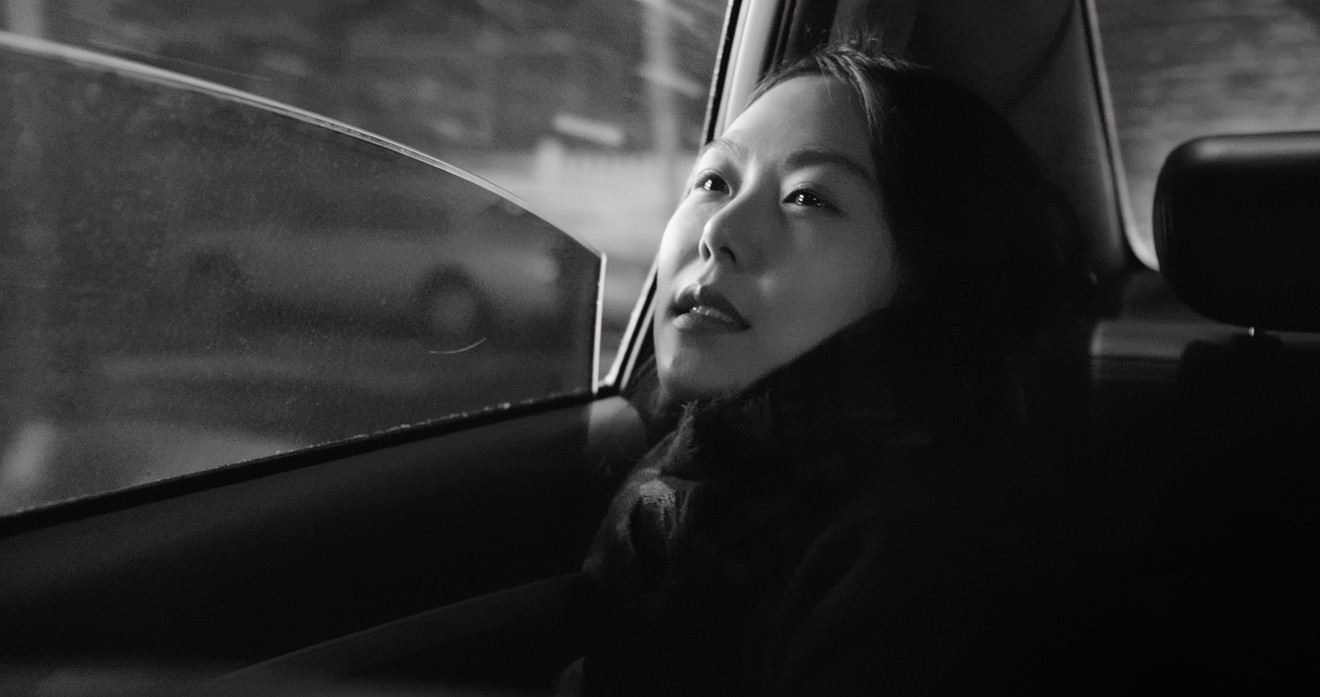Well, there he goes again. Hong Sang-soo’s last couple of years have been absurdly prolific even by his standards, and now he’s back with The Day After, the third film he’s released stateside in six months. It’s not hard to see why he’s been so productive of late: The Day After continues the obsessively self-analytical (and often self-flagellating) tenor of Hong’s recent films, as he once again mulls the impact of his very public affair with star Kim Min-hee and the ensuing collapse of his marriage.
The Day After has little of the melancholy poetry of November’s On the Beach at Night Alone, which looked at the life of a young actress (played by Kim Min-hee herself) who had found herself adrift in the wake of a scandalous public romance with a noted older filmmaker. Nor does it offer the playful magic of Claire’s Camera, which had Isabelle Huppert wandering the beaches and cafes of Cannes, drifting guilelessly into a Korean film industry love triangle. This latest effort is in many ways a harsher, crueler work — perhaps because this time the emotional backbone of the film runs through the man in the relationship. He’s an acclaimed middle-aged writer and small publishing house owner named Kim Bong-wan (Kwon Hae-hyo), whom we see in the opening scene doing his damnedest not to answer his embittered wife’s questions about whether he’s having an affair.
The film’s intricate structure then mostly follows the protagonist’s experiences with two younger women, Ah-reum (Kim Min-hee), his beautiful assistant at the publishing house, and Chang-sook (Kim Sae-byeok), his previous beautiful assistant and former mistress. Telling his tale out of order, Hong allows us to see echoes between the two relationships, but without initially letting on whether the relationships we’re seeing will prove similar or in contrast to each other. We see Bong-wan talk to Ah-reum at the office, getting to know her and discussing grand issues of faith and love and the power of the written word. We see an agonizing conversation between Chang-sook and Bong-wan where she accuses him of cowardice for not telling his wife that he’s in love with another woman.
The back-and-forth time hops are such that it’s hard to tell where one relationship ends and the other begins. Does Bong-wan covet his new assistant the way he coveted the previous one? Given what we know, his avuncular, casual approach to Ah-reum — even asking that they not address each other in formal language — could easily be understood as setting the stage for a romantic overture. At one point, we see his wife come to the office and confront Ah-reum, thinking she’s the employee that her husband has been seeing. When Bong-wan protests to his wife that it’s Ah-reum’s first day at the office, is he actually telling the truth? By disjointing his structure, Hong calls into question his protagonist’s trustworthiness — as if even his honest, genuine moments have been corrupted by his infidelity and lies.
Of all of Hong’s recent efforts, The Day After is the one that feels the most like a therapy session: There are repeated shots of Bong-wan crying and wailing, and the film refuses ever to show him in a generous or kind light. (Indeed, he seems so pathetic that at times it’s hard to see what would have drawn any woman to him.) There’s something caustic and brittle about this movie, maybe even a little impoverished: The imaginative and compassionate leaps of Hong’s other recent films — which spin stories out of the wounded women in the filmmaker’s life — are nowhere to be found. Still, the candor is impressive, and the pain feels real. The Day After may not be a particularly great film, but it does feel like a necessary one.
[
{
"name": "Air - MediumRectangle - Inline Content - Mobile Display Size",
"component": "19274298",
"insertPoint": "2",
"requiredCountToDisplay": "2"
},{
"name": "Editor Picks",
"component": "17482312",
"insertPoint": "4",
"requiredCountToDisplay": "1"
},{
"name": "Inline Links",
"component": "18711090",
"insertPoint": "8th",
"startingPoint": 8,
"requiredCountToDisplay": "7",
"maxInsertions": 25
},{
"name": "Air - MediumRectangle - Combo - Inline Content",
"component": "17482310",
"insertPoint": "8th",
"startingPoint": 8,
"requiredCountToDisplay": "7",
"maxInsertions": 25
},{
"name": "Inline Links",
"component": "18711090",
"insertPoint": "8th",
"startingPoint": 12,
"requiredCountToDisplay": "11",
"maxInsertions": 25
},{
"name": "Air - Leaderboard Tower - Combo - Inline Content",
"component": "17482313",
"insertPoint": "8th",
"startingPoint": 12,
"requiredCountToDisplay": "11",
"maxInsertions": 25
}
]











